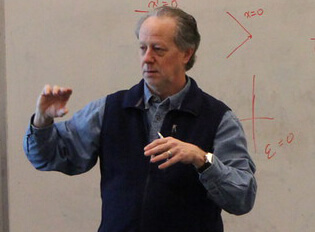
Michael Syphers
The U.S. Department of Energy and the National Science Foundation have appointed Michael Syphers, a senior research professor of physics at NIU, to serve as a member of the national High Energy Physics Advisory Panel (HEPAP).
HEPAP, which meets three times a year, has advised the federal government on the national program in experimental and theoretical high-energy physics (HEP) research since its inception in 1967.
HEPAP members work year-round to prepare periodic program reviews or reports and to provide advice on long-range plans, priorities and strategies for the national high energy physics program and on recommended appropriate levels of funding to assure a world-leadership position.
Syphers will provide his expert advice on accelerator and collider physics. Particle accelerators are used in the medical field for therapy and diagnostics and in development of “designer materials” used in products such as cell phones and computers. Research scientists use these devices to explore the universe at the sub-atomic level.
“This appointment is a tremendous honor for Dr. Syphers and a point of pride for NIU,” said NIU physicist Jerry Blazey, interim vice president of Research and Innovation Partnerships. “The High Energy Physic Advisory Panel is made up of some of the brightest scientific minds in our country and provides an important service to the federal government.”
Syphers came to NIU in September 2015, accepting a joint appointment with the university and Fermilab. Previously, he served for five years as a physics professor at Michigan State University. Before that, he had a long career as a scientist at several U.S. National Laboratories, predominantly at Fermilab.
“Dr. Syphers is providing a vital service to our country by lending his time and expertise to ensuring continued American investment and global leadership in high energy physics,” said Anna Quider, NIU’s director of federal relations. “Federal investments in research and innovation improve life for Illinoisans by supporting long-term economic growth and job creation, training the next generation of innovators and a technically advanced workforce, and fueling discoveries that enhance health, security and quality of life.”
NIU has particular research strengths in accelerator physics and fundamental high energy physics. Both faculty and student researchers are working to develop new particle accelerator and detector technologies, while exploring the most basic building blocks of the universe through scientific collaborations in Illinois, across the nation and in Europe.
